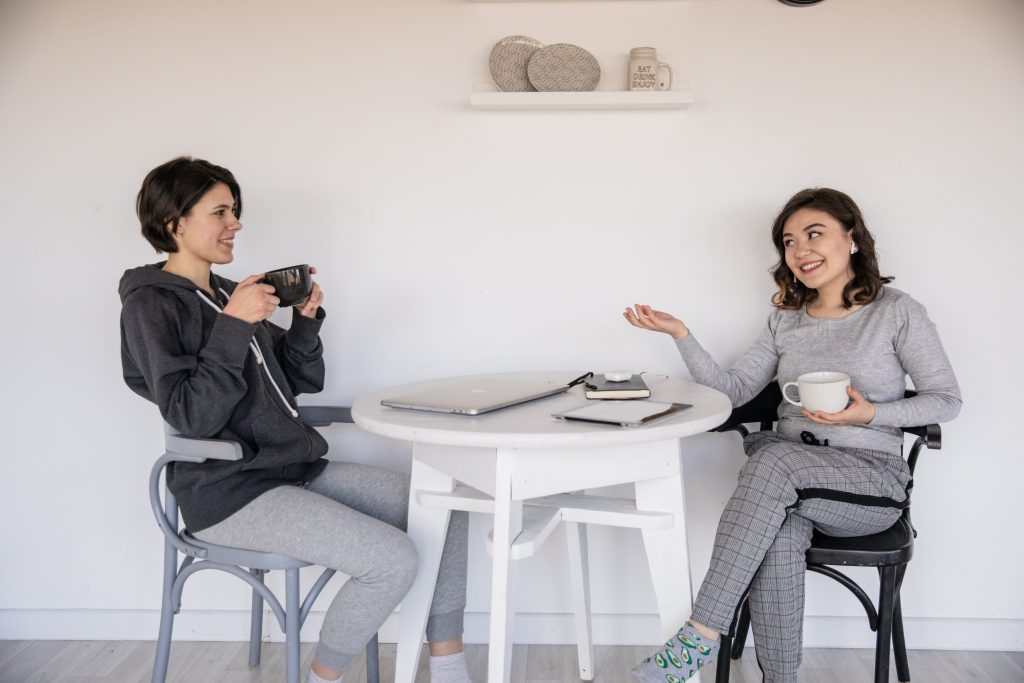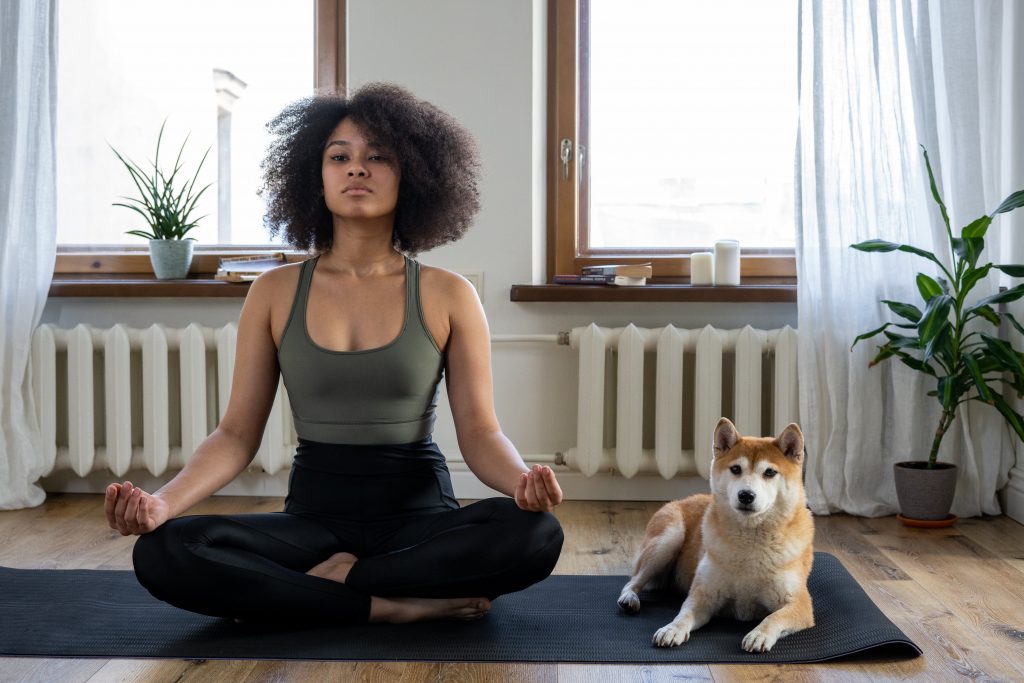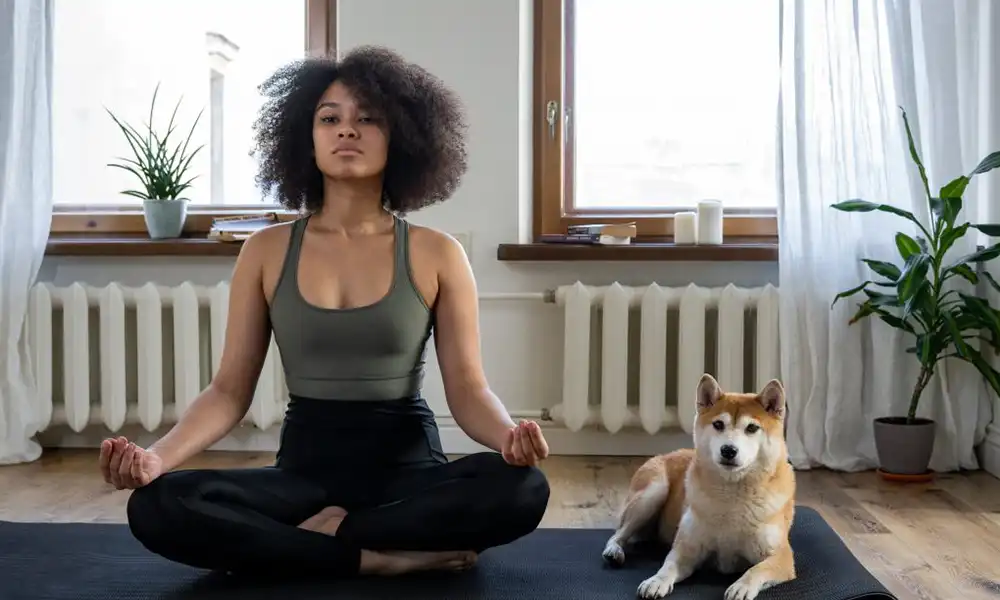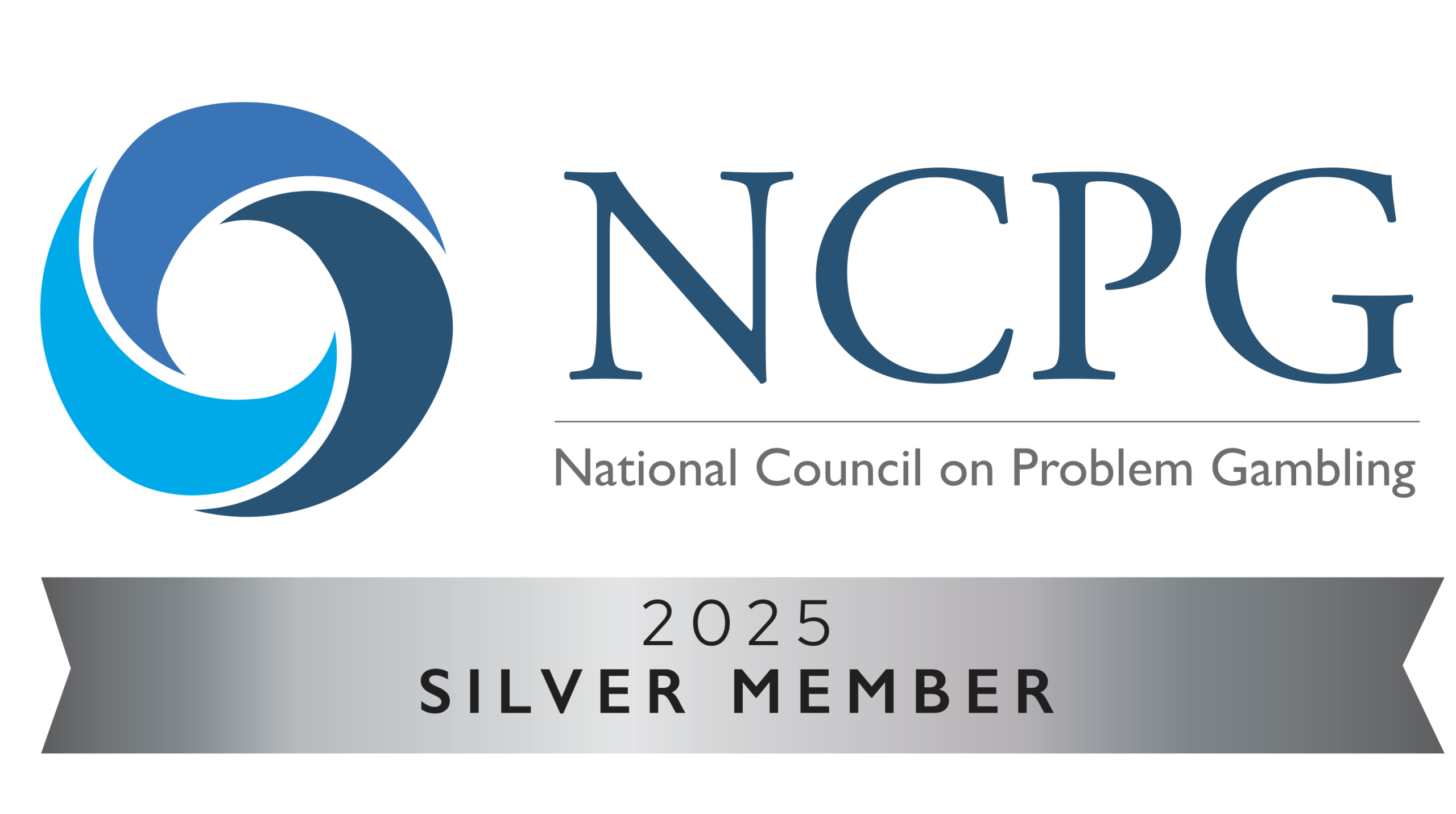January isn’t only for setting New Years Resolutions, but it is also Mental Wellness Month. This focus helps people prioritize their mental health while exploring new ways to increase their overall wellness. Mental Wellness is more than just the absence of mental illness or mental concerns. It is about promoting healthy strategies to increase your sense of wellbeing and prevention. It is also about shifting from stigmatizing people for their challenges with mental health and restoring a sense of shared humanity with others. Mental wellness works to promote awareness, prevention, and changing attitudes about prioritizing mental concerns, like we do with physical concerns, while extending compassion towards people.
Nicasa Behavioral Health Services has 24 tips to help promote wellness throughout 2024. While working on the practice of mental wellness, we encourage everyone to pick tips that work well for their lifestyle. Start off slowly with intention and you can build upon your progress throughout the year. When starting a new habit, it is important to not get discouraged by a lack of immediate results or progress fallbacks.
Life happens. Keep at it and don’t give up!

- Talk to someone.
- Now is always the right time to talk to someone if you need help. Don’t put it off any longer and stop minimizing your concerns. Your problems are real because they are real to you. You owe it to yourself to find a trusted person to talk about them with. While talking may not resolve the issue immediately, it does strengthen your resolve to find a better solution for them.
- Practice self-compassion.
- Compassion means: a strong feeling of sympathy and sadness for the suffering or bad luck of others and a wish to help them. Self-compassion is turning that definition inward to extend yourself the same sympathy and wish to help that you show others. This can be incredibly healing while also assisting in reframing your internal dialogue of how you see yourself.
- Practice mindfulness.
- Carve out a few minutes each day to practice mindfulness. You do not need to do a full meditation, but practice being present, in the moment, and letting your thoughts go without immediate reaction. It can be a challenge at first, especially if stressed out, but with practice you will get better at it.
- Redecorate.
- New year, new you! Don’t wait until spring to freshen up your space. Often a cluttered, disorganized space can cause increased anxiety and avoidance to deal with other tasks. Find new ways to organize your space. There are a ton of cheap, DIY projects online that can allow you to add more of your personality back into your home.
- Practice deep breathing.
- Deep breathing is a great way to refocus your mind. Practicing deep breathing can help you gain a sense of control and balance, while focusing your attention on things that are within your control. Take time to practice while making decisions, or to recenter yourself after a long day at work.
- Journal.
- Journaling can be anything! It can be elaborate, simple, or electronic. You can practice creating your own writing templates, or using a blank note book you bought from Dollar Tree. You can even create sketches, paintings, and collages to represent your thoughts. The act of journaling allows you to record your thoughts and daily activities as you see them. It is a time for yourself, to reconnect with your thoughts and inner self.
- Exercise.
- Exercise in the gym, at home, or around your neighborhood. Sometimes when starting to work out, people will often create their own barriers—like needing an expensive gym membership, extra workout clothing, new equipment, etc. Keep the goal simple: to invite more physical activity into your life. Small steps can build up to bigger progress. Start with what objects around you, or explore new exercise programs. After you find something you enjoy, then you can consider investing into it.
- Practice gratitude.
- Showing gratitude can enhance your enjoyment of day-to-day activities, and improve your mental health. It can help ground you back to things that bring you joy, while noticing the everyday details that are often overlooked when bogged down by stress.
- Limit caffeine and alcohol.
- Limiting caffeine can be difficult when there are so many hidden sources in our food and drinks. Keep in mind, when healthcare providers reference a “standard serving size” a serving of coffee is 8oz with 80-100 milligrams of caffeine, and a drink of 14 grams of pure alcohol (approximately 12oz beer, 5oz wine, 8oz malt liquor, and 1.5oz spirits). Record your daily habits with caffeine and alcohol and set reasonable goals to start with. Remember to be honest with yourself while setting these goals and expectations for success, there will be days where it is easier to cut back than others but make sure you are keeping yourself accountable to this new goal.
- Work on incorporating more nutrient-dense foods, and being mindful of habits around meal times.
- After the holidays, dieting should be easy, right? With the holidays fueling overindulgence, you might feel like you are so full you might not eat again until February anyways. Many people struggle to adhere to a calorie deficient diet in the winter due to our natural biological response to cold weather and perceived natural scarcity that winter causes. Many people also struggle with fasting diets, fad diets, and restrictive diets. Sometimes it is easier to start with a food log of things you eat in a typical month, and create modifications based on foods you already like and ways to make snacking healthier than eliminate your favorite items.
- Get more sleep.
- Sleep eludes many people all year round. It’s tough with daily stressors creeping into your dreams. Sometimes the food and drink choices we make while awake follow us into bed. Caffeine and alcohol often cause people to stay up for longer than they anticipated. Some prescription medications can throw off your circadian rhythm as well. Try to limit your consumption of food and drinks that contain stimulants. Also creating a sleep routine, limiting blue-light from electronics, and kicking the television out of your bedroom can help.
- Meditation and Yoga.

- Yoga and Meditation are a powerful blend of self-compassion, mindfulness, and exercise. Sometimes yoga can be a series of stretches that can improve your flexibility. Don’t let the laid-back nature of the practice fool you though, there are some variations of yoga that are high-intensity workouts, in high-heat and humid rooms, and with animals. Wherever your practice takes you, yoga and meditation are often joined together because they synergize the body and mind while allowing the practitioner space to clear their heads while focusing on being present in the moment.
- Set boundaries to improve relationships.
- Setting boundaries isn’t meant to block people out, they are meant to communicate what you are comfortable with. More importantly, communicating what you are uncomfortable with in a direct way. Everyone has boundaries regardless of how they are communicated. Some people also have different boundaries for different people, or for different places. Only you can decide what is an appropriate boundary for you and how it gets communicated to others. An example: At a holiday party a family member repeatedly said something inappropriate to your partner, and in the moment, you may not have said anything for fears of making the situation worse for your partner or with other family members. You may choose to communicate to that person a few weeks later that you are not okay with how they addressed your partner and in the future you will leave the gathering if they do not show them the same respect they show you. Thus, establishing a clear boundary when you feel safer to do so and a consequence for going over it.
- Take a break from social media.
- Doomscrolling is a modern phenomenon in which someone binges potentially negative content on the internet or social media apps (WebMD). Doomscrolling and obsessive social media checking can increase anxiety, depression, and overall have a negative impact on your mental health. Set limits to how long you use social media or limit the kinds of content you allow yourself to view.
- Hydrate.
- Staying hydrated can make you feel better, inside and out. If you normally do not drink water, getting in 2.7 to 3.7 liters of water can be overwhelming. Increase your amount slowly and explore water flavorings. Try adding frozen fruit into your water inside of ice cubes, or cold brew herbal tea bags—just check to see if they have caffeine in them so you know how much you are consuming throughout your day. Find what works for you.
 Be outside more and bring nature inside with plants.
Be outside more and bring nature inside with plants.
- House plants help to establish house care routines and liven up a space. Talk to a local green house to see what plants are native to your area, or if your green thumb is more on the brown side, what plants are more forgiving to beginners. Gardening outdoors can also improve your mood as well as your appreciation for your home. Hiking and outdoor walks are also a great way to connect with nature and improve your mental health.
- Play music and dance.
- Research has shown listening to music can decrease feelings of anxiety and depression, improve memory, sleep quality, mental alertness, and decrease blood pressure (org). Throw in dancing and you have great physical activity to improve your mood. Dance like no one is watching or learn to ballroom dance with your partner. However you do it, including music into your daily routine can help get you into a better headspace.
- Limit how much you multitask.
- Even though many jobs seem to require it, multitasking can take a toll on you mentally. Regular multitasking can lead to cognitive loss, memory problems, loss in productivity, increased anxiety and social anxiety, chronic stress, and errors that can harm yourself and others around you (com). Even though society has come a very far way, our brains are still only made to handle one task at a time. Even with people who proclaim they are excellent multitaskers, their brains still have to make the same adjustments to switch between tasks and make the reward analysis decisions which slow everyone down—leading to a loss in productivity and errors in work. Try to limit how much and when you multitask. Like avoid talking on the phone while driving in a car or completing several complex tasks at once (working on a report while scheduling appointments).
- Set goals.
- Set realistic goals that do not have an “all-or-nothing” catch to them. Example of all or nothing goals are, “I’m going to workout every day,” “I’m going to grow my business by 200%,” or “I’m never going to eat out again.” These goals do not account for life-events that may get in the way of their achievements, and many people are immediately discouraged by fallbacks in progress. Goals should be something to help set new habits and make improvements that are appropriate to your life.
- Celebrate achievements.
- Life has many reasons to celebrate successes. Celebrate a promotion, completing a certificate program, avoiding a bad habit, and/or reaching a recovery milestone. Celebrating small achievements can keep you motivated as you work your way to bigger ones.
- Plan a vacation or a getaway.
- Making a plan gives you something to look forward to. When you are looking forward, there is hope that better days are coming soon. Making plans can increase positive feelings and decrease depression and anxiety. Even if it is a small weekend getaway, getting out of your normal routine every once in a while, is good for your mental health.
- Try something new.
- Try a new workout class, take an art class, or try out a DIY home décor tutorial for beginners. Learning a new skill can make you feel empowered, increase your self-esteem, and decrease feelings of depression and anxiety. Remember, being bad at something is the first step to being good at anything. A project flop is a fun story, and sometimes can create an even more interesting piece than a successful one.
- Practice forgiveness.
- Forgiving is hard. It’s hard to forgive others, and at times it is even harder to forgive yourself. Work on ways to incorporate forgiveness into your mental health journey. If you cannot forgive the person or situation that happened, then work on forgiving yourself to carry that experience differently with you. Eventually it will become easier with time.
- Work towards bringing balance into your life.
- Striking a balance can be an interesting opportunity to fold in all the new habits you want to create into your established routine. If you find that work is consuming more time away from doing the things you want to do, or being with the people you want to be with, then find ways to build balance there. Sometimes it is not practical to cut back on hours, but work on finding ways to leave without bringing it home.

Share This Story, Choose Your Platform!
Browse Topics
- Community Services / Coalitions
- Company News
- Diversity, Equity, Inclusion, & Justice (DEIJ)
- Driving Under the Influence (DUI)
- Early Intervention
- Education
- Gambling
- Harm Reduction/Deflection
- Life Experiences
- Mental Health
- Messages of Solidarity
- Prevention
- Recovery
- Sober Celebrations & Activities
- Social Services
- Substance Use
- Teen/Youth
- Treatment
- Uncategorized












